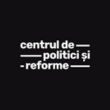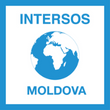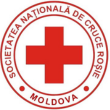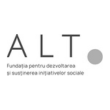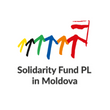Organizații vizate:
- Detalii
- Categorie: Competiții-Concursuri
HelpAge International: Consultancy Announcement for Feasibility Study
Informațiile prezentate în articolul de mai jos pot să nu mai fie actuale sau să nu mai reflecte activitățile și programele curente. Anunțul este păstrat în arhivă pentru a asigura transparența și accesul public la informațiile despre inițiativele și proiectele implementate anterior.
Terms of Reference
Consultancy Announcement
For Feasibility Study of a BMZ project in development for Moldova
Position: Feasibility study consultant
The inquirer: HelpAge International, Moldova
Place of Work: Republic of Moldova, Chisinau
Deadline for application: 16.01.2022
Timeframe: 3 weeks, estimated during 20/01/2023 – 10/02/2023
Type of contract: (Consulting) Service Provision
- Background and context
HelpAge International as Secretariat of a global network committed to promote the wellbeing and inclusion of older women and men, and reduce poverty and discrimination in later life. HelpAge in Moldova works in the areas of advocacy and protection of the rights of older persons, prevention and combating abuse, violence and discrimination, promoting entrepreneurship among older persons and enabling women empowerment through income generating activities, including new areas as age-friendly communities development, digitalisation of older persons and others.
HelpAge works at national level to advocate for better integration of the needs of older persons in public policies and works in communities, through partners, to reach to older men and women, through community-led initiatives. As one of the few non-governmental organisations advocating for the rights of older persons, HelpAge is closely cooperating with the Government in the promotion of active and healthy ageing agenda and mainstreaming ageing into public policies. Moldova has committed in 2014 to integrate ageing in order to promote the rights of older persons, their interests and wellbeing, as a key instrument in ensuring a society for all ages. A Government Programme on mainstreaming ageing into public policies[1] has been completed for the period 2014-2021 and a new Programme on active and healthy ageing is being elaborated during 2022, to continue these efforts. Despite some progress of the two Action Plans for the implementation of the Programme, the Active Ageing Index (AAI)[2] scored 28.7 points in 2020, only one point increased compared to 2016 (27.1 points). Compared to the average in the EU countries where the value of the AAI is 36.8 points, the Republic of Moldova has a negative gap of 8 points. The Active Aging Index measures 4 areas with 22 composite indicators, and shows how well the country is ensuring opportunities to participate and fulfil the potential of population of the age 55+ in: (1) Employment, (2) Participation in Society, (3) Independent, Healthy and Secure Living, (4) Capacity and Enabling Environment for active ageing. The 20 years of MIPAA implementation review showed that the Government should take immediate and stronger engagement in ensuring conditions in all areas of life for people in older ages in order to align to Agenda 2030 of “leave no one behind” and ensure appropriate conditions for a society for all ages.
In 2022 HelpAge is developing a new project - “Strengthening the social participation of older people in Moldova through the establishment of age-friendly pilot communities” through financial support of BMZ (Germany), to strengthen the promotion of the new WHO Framework on Age-Friendly Cities and Communities. The new project aims to contribute to improved access and more inclusive community services, social participation activities, and age-friendly community assets in 15 communities across Moldova, affected by the consequences of war in Ukraine.
- The purpose and use
The purpose of this feasibility study is to make an analysis prior to the project start of the problem addressed and the measures proposed by the applicant, within the given timeframe and allocated resources. The report of the feasibility study will provide a strong basis for improvements of the project proposal and its successful finalisation by the applicant and will contribute to a clearer vision of its implementation in the given country economic, social and political context. The feasibility study is a precondition donor of the given project and will be taken into account while forming its decision on project approval and therefore it is expected to give significant insights on its relevance, likelihood of successful implementation, and indicate on potential opportunities and risks.
- Scope of work
The consultant is required to conduct a feasibility appraisal of the proposed project. The feasibility study will inform HelpAge and the donor (BMZ) on aspects such as the feasibility of the activities and the likelihood of achieving the desired results. The study will also look into feasibility of the time-frame, activity budget according to the planned interventions, impact of the interventions on the target groups and the role of stakeholders in accomplishing this. The recommendations and findings will serve as insights and grounds for the development of a final proposal, that will improve the effectiveness of the interventions and point out on any other opportunities that can be considered and risks to be addressed.
The objectives of the proposed feasibility study include:
- Analysis of the project main goal and objectives/sub-objectives and support in redesigning these, if needed;
- Understanding the feasibility of activities and analyse the impact matrix and the monitoring and evaluation tools of the project progress measurement and advance recommendations for more efficient linkages between these.
- Analyse logframe indicators to measure the impact of activities, both Initial value and Target value indicators. Where appropriate, the evaluator can suggest the Initial value indicators as a baseline for measuring the final impact.
- Analysis of extent to which the selected approach can contribute to solving the problem among the target groups, at national and local level (in line with target communities covered by the action). The project should be critically evaluated in line with the criteria of relevance, coherence, effectiveness, efficiency, impact and sustainability.
- Review the expertise and human capital (project team) suggested at various levels of implementation and recommend areas for capacity building or any other improvements.
Roles: The consultant will work closely with HelpAge Moldova team that will be leading on the coordination process with HelpAge Germany and will provide useful materials and the necessary pack of documentation for the given task. Any other interactions will be established upon contracting, if required by the consultant to meet or consultant other project potential partners and stakeholders.
Required outputs
- Review of the proposed interventions (draft proposal documents) and do the assessment according to below topics
- Review existing data available for project interventions and conduct desk review to understand the country context and the area of work for the project
- Conduct interviews with the project staff, project potential partners, key Government institutions and service providers, as well representatives of local public authorities (to be agreed upon contracting). Conduct focus group discussions with potential project target groups and other actors, as to be identified upon the methodology approval. (To be considered that field visits need to be planned herewith).
- Analyse questions as outlined in the TOR through field visits and interviews of stakeholders and representatives of the suggested target group (direct beneficiaries)
- Present the results in feedback meeting with HelpAge team and if necessary, the field team
- Produce a high-quality analytical report along the topics as outlined in the TORs
- Elaborate a set of recommendations and findings, as part of the analytical report
- Prepare the final analytical report with integration of all feedback from the consultations.
The framework of assessment for the feasibility study is based on terms of the OECD/DAC criteria of relevance, effectiveness, efficiency, impact and sustainability and the planned project should be critically reviewed in line with these. Based on that recommendations should be provided on how to improve project concept and project interventions. The study will answer the questions for each assessment criteria, as follows:
Relevance
- What is the project coverage and specific locations and why these have been selected?
- What is the background for choosing the problems addressed by the project? Have the problems been identified and how? What are the causes for the problem addressed by the project? What effects do these have on the living conditions of different population groups and on the target group addressed by the project?
- Are there any pre-requisites coming from the socio-economic, political or cultural context for the needs’ assessment?
- How relevant are the problems addressed by the project to the country context and the specific area of work, and to the needs of the target group, based on the HRBA?
- Which state and non-state actors and institutions are already working in the planned project locations and at the country level in this sector and beyond? Is there potential for synergies?
- Based on the problem analysis what needs have been found and how were they determined?
- What changes are planned to happen after project completion? What risks could arise?
- What is the background for the project idea and need? How was the project planned and how was the logic impact designed? Could the projected results be achieved in different ways and what are other alternatives to the planned project or its subcomponents?
Effectiveness
- Is there a needs assessment at the basis of the project design? How well-planned are the activities and how do they link to identified needs?
- Has the project foreseen and included risk management tools, beneficiaries’ security and confidentiality measures, ethical behaviour of project staff and volunteers?
- Are the planned outcomes, results and activities appropriate with regards to the needs identified? How these report to timescales, inputs, logistics, risks, assumptions?
- Are the planned activities appropriate to achieve the project objectives?
- Are there appropriate indicators planned for the activities and mechanism to measure them? Is desegregation taken into account for planned indicators (at least age and gender)?
- Has the project got a monitoring and evaluation mechanism? Is there capacity building planned for project staff and actors in M&E?
- Are there tools planned to identify the desired target group of beneficiaries and to cover this group throughout the project lifetime?
- How will the project ensure sustainability of actions and are there follow-up actions planned to ensure sustainability?
- Would an alternative approach be more appropriate or successful in achieving the project objectives (please include pros and cons statement for the different options)?
- Is the project logical framework meaningful for the overall goal of the project? How suitable
and informative are the indicators included in?
Efficiency
- What financial, institutional and human resources will be necessary for the planned actions?
- Are the activities planned in a cost-efficient way and do they offer value for money?
- Is the work plan/ timeframe of the proposed intervention planned realistically?
- Has there been taken into account risk of inflation and fluctuation of currency rates, in the context of the project country?
- How is communication and coordination planned for the project between various level of interventions? Is this appropriate to ensure efficient management and accountability?
- Is there an accountability mechanism in the project? Does this ensure communication of the level of satisfaction of beneficiaries and other emerging needs?
- Has the project design and implementation taken into account participatory approach?
- Is there a plan to establish good cooperation of the project with stakeholders and partners?
- Is the proposed intervention the most efficient way to achieve the desired outputs compared to alternative approaches?
Impact
- To what extent will the project have a structural impact? Is the project intended to serve as a model for broader impact?
- How is the impact estimated at the level of the target group and at the level of society?
- Is the target group well-chosen in order to achieve the intended changes? Are there selection criteria defined to ensure accurate targeting of the intended beneficiaries?
- Are the selected indicators appropriately and SMART?
- Is there a long-term impact estimated for the project?
Sustainability
- How can sustainability of the intended results and impacts be ensured and strengthened
(financially, structurally/ institutionally, ecologically)?
- Which role/ responsibility do the state and/ or civil society have? To what extent will the
project be able to build on local potential, institutions and procedures? What measures and
instruments are best suited to harness and strengthen local ownership and initiative,
participation, and capacity?
- Is there a phase out assistance foreseen in the project?
- Does the project include capacity building and investment in institutional consolidation, as a
pre-requisite of sustainability?
- Has the project got models and actions to be further undertaken by any of the project actors?
- Does the project foresee collection of evidence, lessons learned, researches/evaluations or resources produced to further contribute to the development in the area?
Target group
The target group analysis will include description, their situation in the country, desegregation within the target group according to country profile (to consider ethnic minorities, age groups and subgroups, gender, disability, others). According to each subgroup of the beneficiaries there is need to identify their needs and the specific needs for the project context.
- How can these needs be addressed?
- Are the needs of the target group (identified by the projects) uncovered in the country context?
- Are there limitations of the project in addressing some needs of the target group, that might cause their dissatisfaction due to created expectations?
- Are these needs researched and known in policy documents or in other environment (by CSOs, academic area)?
- What are the criteria for the selection of the target group?
- What role does the target group play in the social context?
- What conflicts of interest could arise between the target group and other, non-target groups as a result of the support provided through the project?
- What kind of own initiatives and self-help efforts do exist? How can these be strengthened throughout the project under the principles of ownership and participation?
- To what extent are gender-sensitive, inclusive and right-based aspects considered?
Stakeholders
- Who are the main governmental and non-governmental stakeholders in the sector and beyond – at the project location and the project country?
- How does the planned project fit in with the government development strategy?
- What are the interests of the stakeholders? Are there any visible conflicts of interest? What interdependencies are to be expected between the project and other interventions/projects supported by the stakeholders? How will this be taken into account in the project concept?
- Do the stakeholders share a common understanding of the problem(s) and of the project objectives derived thereof? What aspects should be taken into account that need more consideration, are there different views over the same area analysed?
- How strong is the various stakeholders' support for the project? How much influence could they exert on the project? Have the stakeholders already entered into any agreements?
The consultant has full responsibility for all planning and logistical issues necessary for the good realization of the assignment, in agreement with the contracting party.
- Consultant / Expert’s profile
- Expert with background in social sciences, psychology, legal or related area
- Strong and proven experience in conducting researches or/and evaluations
- Excellent analytical, research and writing skills
- Good understanding of the political, social, economic and cultural development climate of the project country
- Good understanding of the national legislation and policies on ageing, active ageing frameworks including the WHO age-friendly concepts and related areas.
- Ability to conduct high quality research, quantitative and qualitative analyses, meet deadlines and communication efficiently with the contracting parties and stakeholders.
- Experience in working in the development sector and with externally funded actions.
- Familiarity with participatory approaches and common tools of evaluation
- Excellent written and spoken Romanian and English.
- Timeframe
- The assignment is estimated for the period of up to three weeks during
20/01/2023 – 10/02/2023 and will be linked to the proposed methodology and time input
indicated in the offer submitted by the consultant.
- It is preferable that the consultant be home-based in the project country (Moldova).
- Contracting arrangements
The tender process is estimated to be finalized by 20 January 2023 and notification upon selection to be sent by this date. The selected consultant will be contracted by HelpAge International Moldova and will report to the Country Director. The responsibilities of parts will be included in Service Provision type Contract.
7 . Application process
Interested candidates will send their proposals that will mandatorily include:
- Letter of interest (no longer than one page) with description of the interest in the work, reasoning for being the most suitable candidate for this assignment, qualifications and experience appropriate for the required tasks, 2 professional references with valid contacts and 3-4 links or attachments of previous similar work (evaluation reports, researches, analytical papers, etc.);
- CV (updated), no longer than 4 pages.
- A brief methodology on how he will approach and conduct the work with indication of proposed tools of data collection (desk research, analysis of project documentation, interviews, others);
- Timeframe of work with deliverables for each stage;
- Financial proposal specifying the daily rate and other expenses, if any, breaking down the costs, with total amount indicated. It is suggested to include costs in Euro, with all taxes included.
Applications should be submitted electronically to officehelpage@gmail.com indicating in the email Subject “Application for HelpAge/BMZ Feasibility Study 2023” by 16/01/2022. For printed applications, indicate the mailing address: Republic of Moldova, Chisinau, MD-2005, 57/1 Banulescu-Bodoni Str., office 431, HelpAge International, and use the same Subject on the envelope. For additional information, contact Dina Ciubotaru at: dina.ciubotaru@helpage.org, or by phone numbers: (0373) 22 225098, (+373) 68614910,
Note: Incomplete applications or applications sent after the indicated deadline will not be subject to tender analysis.
[1] https://www.legis.md/cautare/getResults?doc_id=13818&lang=ro
[2] https://moldova.unfpa.org/sites/default/files/pub-pdf/indicele_de_imbatranitre_activa_0.pdf
- Banca Națională angajează responsabil subdiviziune administrativă
- Extended deadline: Centrul de Drept al Avocatilor - Recruitment for legal counsellor position
- Veo is hiring a Business Analyst
- Termen extins: Centrul de Drept al Avocaților(CDA) angajează Specialist/ă în comunicare
- Anunț de Selectare a Experților - I.P. ONIPM



